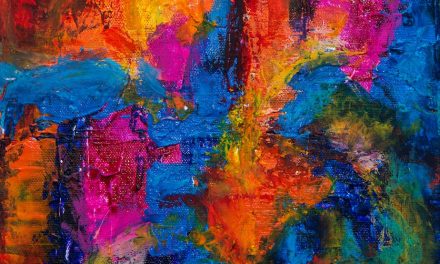Table of Contents
Unveiling the power of poetry, shaping Arab societies.
Introduction
“The Cultural Role of Poetry in Arab Societies: Rhyming Leadership Values” explores the significance of poetry in Arab societies and its influence on shaping leadership values. This paper delves into the historical and cultural context of poetry in the Arab world, highlighting its role as a powerful medium for expressing and transmitting societal values, particularly in relation to leadership. By examining the use of rhyme, rhythm, and metaphor in Arabic poetry, this study aims to shed light on how poetry has been utilized to convey and reinforce leadership ideals, moral principles, and social norms within Arab societies.
The Influence of Poetry in Shaping Arab Leadership Values

The cultural role of poetry in Arab societies is deeply rooted in history and has played a significant role in shaping leadership values. Poetry has been a powerful medium of expression, allowing individuals to convey their thoughts, emotions, and aspirations in a lyrical and artistic manner. In Arab societies, poetry has been revered as a form of communication that not only entertains but also educates and inspires.
One of the key ways in which poetry has influenced Arab leadership values is through its ability to convey moral and ethical principles. Arab poets have long used their verses to highlight the importance of justice, fairness, and compassion in leadership. Through their poetry, they have emphasized the need for leaders to be just and equitable, to treat their subjects with kindness and respect, and to uphold the principles of social justice.
Moreover, poetry has served as a means of preserving and transmitting cultural heritage and traditions. Arab poets have been the custodians of their society’s history, documenting important events, celebrating heroes, and immortalizing the values and customs of their people. By doing so, they have played a crucial role in shaping the collective memory of Arab societies and reinforcing the cultural identity of their communities.
In addition to preserving cultural heritage, poetry has also been instrumental in promoting unity and solidarity among Arab societies. Arab poets have often used their verses to foster a sense of belonging and togetherness, emphasizing the shared values, traditions, and aspirations of their people. Through their poetry, they have encouraged cooperation, collaboration, and mutual support, thereby strengthening the social fabric of Arab societies.
Furthermore, poetry has been a powerful tool for social critique and political commentary in Arab societies. Arab poets have often used their verses to express dissent, challenge authority, and advocate for change. Through their poetry, they have provided a platform for individuals to voice their grievances, question the status quo, and demand justice and equality. In this way, poetry has played a crucial role in holding leaders accountable and pushing for social and political reforms.
It is important to note that the influence of poetry on Arab leadership values is not limited to the past. Even in contemporary Arab societies, poetry continues to shape leadership values and inspire individuals to strive for excellence. Arab leaders often draw inspiration from the rich poetic tradition of their societies, incorporating its values and principles into their leadership styles. By doing so, they seek to connect with their people, gain their trust, and demonstrate their commitment to the cultural heritage and aspirations of their communities.
In conclusion, the cultural role of poetry in Arab societies has been instrumental in shaping leadership values. Through its ability to convey moral and ethical principles, preserve cultural heritage, promote unity and solidarity, and provide a platform for social critique, poetry has played a significant role in influencing Arab leadership values. Whether in the past or present, poetry continues to inspire and guide leaders, reminding them of the importance of justice, fairness, compassion, and the preservation of cultural identity.
Exploring the Historical Significance of Poetry in Arab Societies
The cultural role of poetry in Arab societies is deeply rooted in history and has played a significant role in shaping the values and traditions of these societies. Poetry has been a means of expression, communication, and preservation of cultural heritage for centuries. In this section, we will explore the historical significance of poetry in Arab societies and how it has influenced the development of leadership values.
Poetry has been an integral part of Arab societies since ancient times. It was not only a form of entertainment but also a means of transmitting knowledge, wisdom, and moral values from one generation to another. In pre-Islamic Arabia, poets held a prominent position in society and were highly respected for their ability to compose eloquent verses. They were seen as the guardians of the Arabic language and the preservers of the Arab cultural identity.
During this period, poetry played a crucial role in tribal warfare and conflicts. Poets were often called upon to compose verses that would inspire and motivate warriors on the battlefield. These poems were not only meant to boost morale but also to instill a sense of honor, bravery, and loyalty among the fighters. The power of poetry in mobilizing and uniting communities during times of war cannot be underestimated.
Moreover, poetry was also used as a tool for diplomacy and negotiation. Arab leaders would often send poets as emissaries to other tribes or kingdoms to convey messages, resolve disputes, or establish alliances. These poets, known as “rajaz,” were skilled in the art of composing verses that would captivate their audience and persuade them to their cause. Their ability to use language effectively and manipulate emotions through poetry was highly valued.
With the advent of Islam in the 7th century, the role of poetry in Arab societies underwent a transformation. Islamic poetry emerged as a powerful medium for spreading the message of the Quran and promoting Islamic values. Poets became the voice of the community, using their verses to inspire piety, righteousness, and devotion to God. They played a crucial role in shaping the moral fabric of society and reinforcing the teachings of Islam.
In addition to religious themes, poetry continued to address social, political, and cultural issues. Poets used their verses to critique the actions of rulers, advocate for justice, and express the aspirations and concerns of the people. They became the conscience of society, challenging the status quo and calling for change when necessary. Poetry became a means of social commentary and a platform for expressing dissent.
The influence of poetry on leadership values in Arab societies cannot be overstated. Through their verses, poets have shaped the ideals of leadership, emphasizing qualities such as wisdom, justice, humility, and compassion. Leaders were expected to embody these values and govern with integrity and fairness. Poetry served as a reminder of the responsibilities and duties of those in positions of power.
In conclusion, the historical significance of poetry in Arab societies is multifaceted. It has served as a means of communication, preservation of cultural heritage, and a tool for diplomacy. Poetry has played a crucial role in shaping leadership values, promoting moral ideals, and inspiring social change. Its influence continues to be felt in Arab societies today, as poetry remains an integral part of their cultural identity.
Poetry as a Medium for Preserving and Transmitting Arab Cultural Values
Poetry has long played a significant role in Arab societies, serving as a medium for preserving and transmitting cultural values. In Arab culture, poetry is not merely a form of artistic expression; it is deeply intertwined with the fabric of society and serves as a means of communication, education, and preservation of history.
One of the primary functions of poetry in Arab societies is its role in preserving cultural values. Through the use of vivid imagery, metaphors, and symbolism, poets capture the essence of Arab traditions, beliefs, and customs. These poems serve as a repository of cultural knowledge, ensuring that the values and traditions of Arab societies are passed down from one generation to the next.
Moreover, poetry acts as a vehicle for transmitting these cultural values to the wider community. In Arab societies, poetry is often recited and performed in public gatherings, such as weddings, funerals, and religious ceremonies. These occasions provide a platform for poets to share their verses with the community, reinforcing the cultural values and norms that bind Arab societies together.
Furthermore, poetry serves as a means of educating the younger generation about their cultural heritage. In many Arab countries, poetry is taught in schools as part of the curriculum, allowing students to develop an appreciation for their cultural roots. By studying the works of renowned Arab poets, students gain insights into the values, traditions, and historical events that have shaped their societies.
In addition to preserving and transmitting cultural values, poetry also plays a crucial role in shaping the collective identity of Arab societies. Arab poets often use their verses to celebrate the achievements and virtues of their people, instilling a sense of pride and unity among the community. By highlighting the shared experiences and aspirations of Arab societies, poetry fosters a sense of belonging and solidarity.
Moreover, poetry has historically been used as a tool for social and political commentary in Arab societies. Arab poets have often used their verses to criticize societal injustices, advocate for political change, and challenge oppressive regimes. Through their powerful words, poets have been able to mobilize public opinion and inspire social movements, making poetry a potent force for social and political transformation.
Furthermore, poetry has played a significant role in shaping the leadership values of Arab societies. In Arab culture, leaders are often expected to possess eloquence, wisdom, and a deep understanding of their people’s needs. Poetry, with its emphasis on linguistic mastery and emotional resonance, serves as a training ground for aspiring leaders, honing their oratory skills and fostering empathy and compassion.
In conclusion, poetry occupies a central place in Arab societies, serving as a medium for preserving and transmitting cultural values. Through its vivid imagery and powerful words, poetry captures the essence of Arab traditions and beliefs, ensuring that these values are passed down from one generation to the next. Moreover, poetry shapes the collective identity of Arab societies, instilling a sense of pride and unity among the community. It also acts as a tool for social and political commentary, challenging societal injustices and inspiring change. Finally, poetry plays a crucial role in shaping the leadership values of Arab societies, nurturing the skills and qualities necessary for effective leadership.
The Role of Poetry in Arab Societies: Fostering Unity and Identity
The cultural role of poetry in Arab societies is deeply rooted in the history and traditions of the region. Poetry has played a significant role in fostering unity and identity among Arab communities for centuries. It serves as a powerful tool for expressing emotions, preserving cultural heritage, and transmitting values from one generation to another.
Arab societies have a long-standing tradition of oral poetry, where poets recite their verses in public gatherings, known as “mujawarat.” These gatherings provide a platform for poets to share their thoughts, feelings, and experiences with the community. Through their words, poets capture the essence of Arab identity, reflecting the values, beliefs, and aspirations of their people.
One of the key functions of poetry in Arab societies is to foster unity. Poetry has the ability to bring people together, transcending social, economic, and political divisions. It serves as a common language that unites individuals from different backgrounds, allowing them to connect on a deeper level. In times of conflict or hardship, poetry acts as a unifying force, reminding people of their shared history and common humanity.
Moreover, poetry plays a crucial role in preserving cultural heritage. Arab societies have a rich poetic tradition that dates back centuries. Through poetry, the stories, customs, and traditions of the Arab people are passed down from one generation to another. Poets act as custodians of their culture, ensuring that the knowledge and wisdom of their ancestors are not lost. By reciting ancient verses, they keep alive the memory of their forefathers and maintain a sense of continuity with the past.
In addition to preserving cultural heritage, poetry also serves as a vehicle for transmitting values. Arab societies place great importance on moral and ethical principles, and poetry is an effective medium for conveying these values. Poets often use their verses to promote virtues such as courage, justice, and compassion. They inspire their audience to uphold these values in their daily lives, thereby contributing to the moral fabric of society.
Leadership values are particularly emphasized in Arab poetry. Poets often praise and extol the virtues of their leaders, highlighting their wisdom, bravery, and generosity. Through their verses, they reinforce the ideals of good governance and inspire others to follow in the footsteps of these exemplary leaders. Poetry, therefore, plays a crucial role in shaping the collective consciousness of Arab societies and influencing the behavior of its members.
In conclusion, the cultural role of poetry in Arab societies is multifaceted and profound. It fosters unity by providing a platform for individuals to connect and share their experiences. It preserves cultural heritage by passing down the stories and traditions of the Arab people. It transmits values by promoting moral and ethical principles. And it rhymes leadership values by praising and inspiring exemplary leaders. Poetry is not merely a form of artistic expression; it is a powerful force that shapes the identity and values of Arab societies. Its significance cannot be overstated, as it continues to play a vital role in the cultural fabric of the Arab world.
Q&A
1. What is the cultural role of poetry in Arab societies?
Poetry plays a significant cultural role in Arab societies, serving as a means of expression, preserving traditions, and conveying moral and social values.
2. How does poetry contribute to the preservation of leadership values in Arab societies?
Poetry helps preserve leadership values in Arab societies by praising and glorifying leaders, highlighting their virtues, and reinforcing the importance of qualities such as wisdom, courage, and justice.
3. What impact does poetry have on Arab society’s perception of leadership?
Poetry shapes Arab society’s perception of leadership by portraying leaders as role models, inspiring admiration and loyalty among the people, and reinforcing the belief in the importance of strong and virtuous leadership.
4. How does poetry reflect the cultural values and traditions of Arab societies?
Poetry reflects the cultural values and traditions of Arab societies by incorporating themes such as honor, hospitality, bravery, and love for one’s homeland. It serves as a medium to celebrate and preserve the rich heritage and identity of Arab societies.
Conclusion
In conclusion, poetry plays a significant cultural role in Arab societies by promoting and preserving leadership values. Through its rhyming structure and artistic expression, poetry serves as a powerful medium for conveying and reinforcing important societal values, such as honor, bravery, wisdom, and justice. It has been an integral part of Arab culture for centuries, shaping the collective identity and providing a platform for leaders to communicate their ideals and inspire their communities. The cultural role of poetry in Arab societies is deeply rooted and continues to be cherished and celebrated as a unique form of artistic expression and a means of transmitting leadership values across generations.




